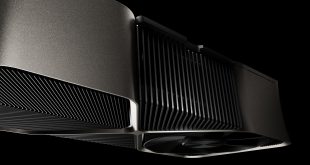AMD and Firaxis studios have decided to team up for Sid Meier's Civilization VI, creating a new DirectX 12 renderer specifically optimised to bring an in-game performance boost to Radeon graphics cards. This means that Civ Vi will support technologies like Asynchronous Compute and Explicit Multi-Adapter.
Right now, AMD's Graphics Core Next and Polaris architectures seem to have the best support for Asynchronous Compute, so GPUs like the RX 480 may see a nice performance bump. This technology allows GPU-related tasks to be completed in parallel, rather than one at a time, which can lead to a significant performance advantage.
Explicit Multi-Adapter support on the other hand allows developers to spread workload across multiple GPUs using tools like Split-Frame Rendering, which initially debuted as part of the Mantle API in Civilization: Beyond Earth. This tool breaks every single frame down in to tiles and assigns each one to a GPU, each card then works together to assemble the tiles into a single frame.
Civilization VI comes out on the 21st of October this year as a PC exclusive. Aside from that, there will be four DLCs releasing later on to help expand the base game.
KitGuru Says: Given this news, it will be interesting to see how well Civilization VI runs across a range of cards when it comes out later this year. Are any of you looking forward to Civ VI? What do you think of the new partnership with AMD?
 KitGuru KitGuru.net – Tech News | Hardware News | Hardware Reviews | IOS | Mobile | Gaming | Graphics Cards
KitGuru KitGuru.net – Tech News | Hardware News | Hardware Reviews | IOS | Mobile | Gaming | Graphics Cards




AMD just has to start giving out their cards for free to Devs so that they build with it.
seems like AMD finally figured out how to make money, by screwing over the other card maker. only took a couple years of nvidia doing it to them.
Optimisations are not “screwing over the other company”. Besides this is nothing new. The previous Civilzation game had a Mantle rendering path, like the article says. So this is just the continuation of an existing relationship.
say what you will, but its a fairly well established fact that nvidia cards poorly perform when async compute is overemphasized in games. and surprise surprise when AMD works with a company you see a push for async compute in DX12…
That is Nvidia’s own fault for implementing driver based Async Compute rather than hardware based. If they implemented real Async Compute via hardware, they would benefit from it as well.
I currently earn about 6,000-8,000 dollars a month for freelancing i do from my home. For those of you who are prepared to complete easy computer-based jobs for 2-5 hours every day from your living room and get good income while doing it… Try this work SELF93.COM
dxfrftgt
Nvidia’s gains have been from heavily optimising the still mostly serial graphics path that has existed all the way to DX11. AMD has been focused since abandoning VLIW for GCN on being able to execute workloads in parallel. Its why it developed things like Mantle in the first place (and then gifted it to Kronos).
Nvidia will catch up, but it needs a new architecture to do it, as things like preemption (which is a fantastic tech btw, especially for DX11), only partially mitigates the effect of multipath rendering.
you mean: start from scratch …
One would maybe assume thats what Volta is, considering Pascal didn’t exist in roadmaps even two years ago.